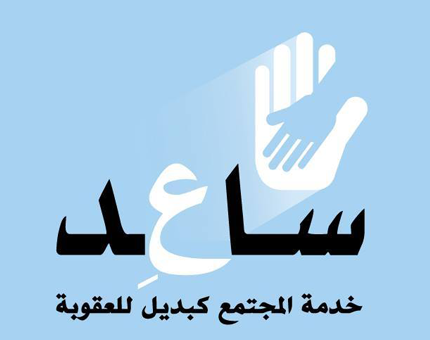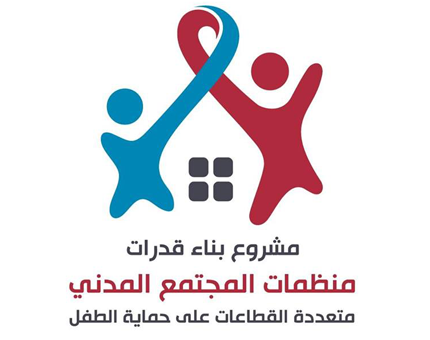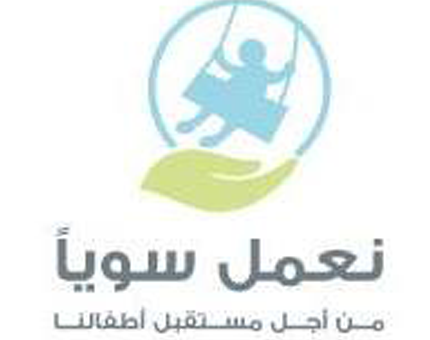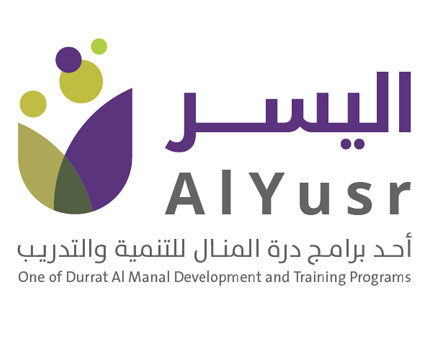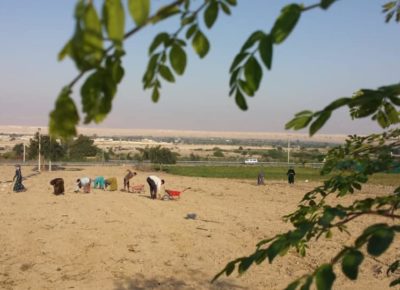Durrat Almanal for Development and Training (DMDT)
DMDT was established as a Not for Profit Company on November 2016, and registered at the Ministry of Industry and Trade, registration number: 200157200. DMDT has been on the forefront of various successful empowerment projects and activities in a business environment of supportive potential donors and participants such as: business service providers, government entities, UN agencies, NGOs and INGOs, universities and international partners to continue its mission of delivering effective development and humanitarian programming.
Founding members: Manal Alwazani & Dr. Sawsan Majali
Our Vision: Creating opportunities where everyone can achieve their fullest potential through participating and contributing to building a better community.
Our Mission: Empowering and developing capacities and skills of individuals, organizations and communities; enhancing their leadership skills to create a better life for themselves and future generations, through the implementation of studies, initiatives, projects and programs.
Durrat AlManal for Development and Training
Empowering and developing capacities and skills of individuals, organizations and communities; striving to facilitate economic growth and to overcome development challenges, enhancing leadership skills to create a better life for the youth, women, and men, through:
- Promoting entrepreneurship and innovation,
- Designing and managing programs for development and donor agencies,
- Managing, promoting and stimulating the creation of public-private partnerships,
- Encouraging social responsibility and community involvement,
- Enhancing the competitiveness,
- Enhancing the competitiveness for Jordanian products, sustainability of DMDT Moringa products at the Jordanian markets and for export
DMDT will achieve this through programs that focus on:
- Child Development and Protection
Developing programs and projects focused on children’s education, protection, child rights, as well as nutrition and health.
- Youth and Women Empowerment
Creating employment opportunities and building individual capacities for youth, women and communities, building leadership and life skills, self and economic empowerment, wellbeing and health interventions and awareness raising.
- Organizational Development
Empower civil society by building their capacity to hold the government accountable in the areas of service delivery, corruption, human rights and civil rights. Support NGOs to establish sustainable channels of dialogue and partnership between them and the government to ensure that civil society is involved during policy-making processes. Capacity building in the areas of project development and implementation, management and crisis management, tracking and monitoring, leadership skills and governance.
- Community development
Conduct community assessment, research, and monitoring and evaluation in the following areas: women, children, and youth. Conducting capacity building and economic empowerment projects aimed to meet the needs of the local communities.
- Scientific research
Developing mutually beneficial relationships with national universities, and research centers through research and innovative initiatives and health, nutrition and agriculture research.
Our Values:
- Accountability
We take personal responsibility for our actions and decisions, for using our resources efficiently, for achieving measurable results, and for being accountable to our clients, our partners and to the communities we serve.
- Excellence
We will always do what we say we will and we will continuously strive for excellence and quality in everything we do, we will hold ourselves accountable to high standards and seek to hold others to similar standards as the ones we set for ourselves.
- Collaboration:
We place high value on our dynamic interaction and cooperation with our partners and networks, and we seek to create new partnerships and alliances, all this will allow us to leverage our strength and our expertise in all that we do.
- Creativity:
We are always open to exploring new ideas, embracing change, and working to develop and create innovative programs and initiatives that best serve our beneficiaries and communities.
- Integrity
We pride ourselves in being open, honest and accountable in our relationships with all our clients and beneficiaries, partners and stakeholders.
- Transparency
We pledge that our basic financial information, governance structure, activities and partnerships are open to public scrutiny.
- Professionalism
We commit ourselves to carry out our activities in a professional and ethical manner focusing on empowering others and maintaining the highest standards of trustworthiness and reliability. We will always put our clients and beneficiaries first.
Brief History of Durrat Almanal for Development and Training (DMDT)
DMDT was established as a nonprofit company with the mission of empowering and developing the skills and capacities of individuals, communities and organizations in Jordan and the Region, taking into consideration the national agendas, 2030 Sustainable Development Goals and other development strategies.
Our involvement in the community stems from our belief that any development model should follow a bottom-up approach, where the community is the core and owner of its destiny. Our support will be through providing consultations, assessing needs of organizations and communities and individuals, strategic and action planning, programing and budgeting, capacity building, mentoring and coaching, and monitoring and evaluation of projects and activities. In addition, DMDT will utilize research to inform, monitor and evaluate all its activities and programs.
Capitalizing on local, regional, and international expertise and in partnership with NGOs, CBOs and stakeholders, our goal is to meet the needs of the community and empower them, develop a sense of ownership and sustainability of their activities and projects. This will be realized by utilizing evidence and best practices.
Our programs will focus on meeting local and regional development and humanitarian needs in the fields of Economic Empowerment, Education, Health and Nutrition, Child and Family Protection, Livelihoods, Advocacy, and Fundraising, for the following age groups: Early Childhood, Youth, Women and Elderly with an emphasis on self and economic empowerment and social protection
DMDT Team
The DMDT team is comprised of various professional Jordanians who are experts in a variety of development, health and humanitarian fields. The collective experience available at DMDT, in both the public and private sector, allows for a comprehensive delivery of targeted support to different communities and individuals. Through its professional capabilities and effective management DMDT has been able to successfully respond to the needs of Jordanian communities, women, youth.
Rigorous efforts on the part of DMDT have directly contributed to increasing the competitiveness and economic success of several Jordanian communities in the Jordan valley and in the Palestinian and Syrian camps. DMDT continues to expand its vision and maintain its position as a recognized innovative and provider of excellent programing and a creator of a Jordanian success model “from the land to the market” Al Yusr local program initiative.
DMDT CSR Economic Empowerment Project: “The story of Al-Yusr Project”
Since 2018, DMD started with an innovative entrepreneurial notion to support the Southern Ghor youth and women and launched a new idea to grow Moringa trees. The idea developed into a project focused on empowering women through a variety of tools that respect their culture and that took advantage of the location of the Southern Ghor in lowest part on earth (Jordan Valley Dead Sea Area) the green house of Jordan.
Our tools included training in economic empowerment, rural and agri-tourism, food preparation and service and marketing. The economic empowerment training has provided the women with the basic concepts of how to develop and run their small businesses. While the rural and agri tourism training focused on utilizing their principles to build income generating business that are sustainable and environment friendly. The food preparation and service training further prepared the women for several roles of preparing food, providing services to visitors of the farm, in addition to selling products produced in the farms
On the 30 donum land DMDT planted ten thousand Moringa trees. DMDT Moringa products (green and dried leaves, Moringa powder and seeds, in addition to the thyme mixture with Moringa and labaneh with oil and Moringa, Moringa tea bags) received the approvals from the Jordan Food and Drug Administration, and the products are available in many local markets. The proceeds of the sale of our products are reinvested in the sustainability and development of the project.
The young men and women from the local community work in addition to contributing to the management of the project they are also the mainstay of the production chain, starting from planting to processing, marketing and sales of DMDT Moringa products.
The initiative of environmental tourism has been introduced to the project to promote the idea of pioneering community agriculture and as a source of income for the community, in addition to educating community members and project visitors about healthy food and the role of Moringa in their diets and how it can be included in many food and health products.
“Our social responsibility to Jordan is through Al-Yusr tree – and Al Yusr is the one that sent out the call to us.”
Achievements:
Since October 2016 until the present DMDT has led and implemented several projects with a mission of sharing its knowledge and experience to support the organizations and individuals both in capacity building and in knowledge transfer. Women’s empowerment and child protection, advocacy, governance and the child rights and human rights were taken into consideration while building our projects.
Projects and activities:
- Rooftop planting in Marka Refugee Camp, funded by Plan International (Oct. 2020-Sept. 2021). On going
The problem of lack of food, health care, loss of job opportunities, and low family income that residents faced during the period of COVID 19 lockdown, difficulty in reaching shops, and difficulty for farmers to reach markets was the basis for developing this project. The project focuses on establishing home gardens on rooftops or around homes and creating productive gardens in public areas in Marka camp. Project activities include: Establishing community-based local committees of youth and local leaders in order to ensure the sustainability of the project and to manage the project in all its stages and set criteria for selecting the beneficiary group. The project takes into account the fair representation of women and people with special needs. Training will include growing vegetables and other plant, rationalizing the use of irrigation water, preparing compost and organic soil for use in gardens, product harvesting, packaging and bartering of products between producing families and selling the surplus. Durrat Al Manal will assist in selling products through its network of vegetable and grocery stores. The project will provide an agricultural expert to train the beneficiaries and a group of volunteers, in addition to providing them with support during the project period. DMDT will provide all necessary materials for the work of rooftop and productive gardens.
- Indebted Women in Jordan, in the time of COVID 19, funded by Swiss Embassy (May 2020- Nov. 2020). On going,
The project is the first of a bigger project which focuses not only on developing a comprehensive picture of indebted women but to also develop a preventive and rehabilitative program whereby women applying for microfinance are prepared for this venture and understand its implications and also are supported through several methods such as counselling, mentoring and coaching to ensure a greater number of women becoming economically productive and financially solvent and dealing with COVID-19 crisis. An additional result of the project is a conference and policy brief with recommendations for the government to develop legislations, policies, and strategies on women’s access to ethical and fair funding as well as decent work.
- Al Yusur Project-Moringa tree (Feb 2017- ). On going
Responding to the poverty and malnutrition including anemia in the southern Jordan valley (Ghor Hadithah and Mazra) DMDT started as an innovative sustainable replicable program. The first phase of the project was funded by Al-Iqbal corporation and phase 2 by the Embassy of the Netherlands. At present we are in the sustainability phase focusing on investment opportunities, developing new products, increasing points of sales in Jordan and export of Moringa products abroad. DMDT will continue to maintain its focus of opening new job opportunities for women and youth. The project has planted 10000 Moringa to ensure the availability of Moringa harvest throughout the year. A licensed laboratory has been established by the Jordanian Food and Drug Administration, in which Moringa and other products are prepared and packed. Our products are sold in most local markets and soon in the global markets.
In order to promote ecotourism, a productive kitchen and a moringa cafe were established, where visitors can stroll around the farm, taste and buy our healthy food products. The project has provided many different job opportunities for the youth and women of the region in the field of agriculture, after receiving training by specialists in various subjects with the aim of raising their skills in the fields of food processing, ecotourism and others
- Capacity building of CBOs/NGOs for child protection in 4 Palestinian camps and music therapy for children in 2 Syrian refugee camps and host communities, funded by UNICEF (June 2019-March 2021). On going
This project sought to improve access of vulnerable boys and girls through an integrated package of quality child protection, gender-based violence prevention and response services. It builds on the previous work (Jan – May 2019) that was implemented in partnership between UNICEF and DMDT where groundwork for establishing child protection committees was laid, and the referral pathway for service providers were updated.
The current partnership carried out trainings for relevant CBO/ NGOs in four camps (Baqaa, Aqaba, Marka and Aqaba) on topics identified as priorities by the communities: Psychological first aid, Protection issues of children with disabilities and Community leaders’ role in child protection, How to identify community needs and translate them to project/actions; Proposal writing; Project management projects at financial and activity level. The project provided coaching and support to the newly established Child Protection Coordination Committees (CPCC) to guarantee the sustainability of the Child Protection Referral SOP, with a focus on supporting the stakeholders to continue identifying early and referring vulnerable children to appropriate services including case management services as needed.
The music therapy (Musiqati) part consisted of training of volunteers as facilitators in two Syrian camps and two host communities to provide psychosocial support through music therapy activities for Syrian refugee children in Makani centers in addition to developing a training manual for camp volunteers.
- Justice Sector Forum: An Expanded Role, funded by ARDD (April 2019- December 2020).
On going
In order to continue to expand and sustain the work of the Justice Forum established in 2017, DMDT has expanded the membership of the forum to include both members of the justice sector, other sectors and from the general public who are concerned or affected by this sector. In addition, a quarterly newsletter will be published and hold a minimum of 4 round table meetings to enhance dialogue by justice sector stakeholders on a selected group of topics.
- Community Service as an Alternative Punishment, funded by Swiss Embassy (April-Oct. 2018).
Human rights project, 2018 grant was been awarded to DMDT. The purpose of the project was to raise awareness of judges, behaviour monitors and CSOs on the implementation of Community Service as an Alternative Punishment as well as build the capacity of CSOs to pilot test a program to accommodate community services programs for juveniles within their activities. Training of juvenile judges, behaviour monitors, CSOs was been implemented. A training manual has been developed. By the end of the project the first community services alternative measure sentence was issued by the Juvenile court judge with the support of DMDT.
- Enhancing Support for Justice Sector Reform in Jordan, funded by EU (July 2017- June 2018).
DMDT was responsible for establishing and leading the steering committee for the justice project in cooperation with ARRD. The overall objective of the project was to engage the Jordanian public in the ongoing justice sector reform process by raising awareness and support among general and professional audiences for selected reform initiatives. DMDT is responsible for the creation of Steering Committee containing key representatives of relevant governmental and civil society institutions as well as justice sector practitioners. Carrying out Roundtables and Write-shop to identify key messages to be used in the multi-level outreach campaign in order to raise awareness and support for selected justice sector reform initiatives.
- CBO Mapping, Outreach and Assessment of the Civil Society Organizations Working with Children in Jordan, funded by UNICEF (Sept.-Nov. 2017).
The purpose of the project was to identify potential community-based organizations (CBO) and national NGOs to engage in a UNICEF capacity building program, which will be designed to support those organizations to efficiently, effectively and equitably deliver results for children in Jordan, covering all 12 governorates.
- Fostering a Culture of Responsibility and Accountability for the Purpose of Improving the Learning Environment in Jordan, funded by ARDD ( 2016- Jan. 2017).
Providing technical support for the policy paper and the end of contract event for the program. The policy paper has been disseminated and shared with all the relevant stakeholders; covering the legal frame, school environment and parents’ involvement in the education process of their children, along with the accountability of the government and the society towards education.
